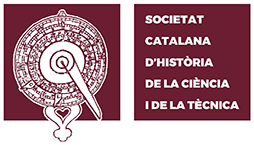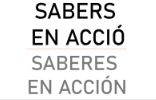Metalls pesants tòxics en el treball i en l’ambient
Cicle de seminaris: Metalls pesants tòxics en el treball i en l’ambient
IHMC València. Febrer i març del 2018 – 16 h. online
Institut d’Història de la Medicina i de la Ciència “López Piñero” (Universitat de València) amb el suport de la Societat Catalana d’Història de la Ciència i la Tècnica (SCHCT)
Segona sessió: 21 de febrer de 2018. 16 h.
‘Occupational Exposure to Heavy Metals Poisoning: Scottish Lead Mining’
a càrrec de Catherine Mills (University of Stirling)
Sala de conferències (IHMC)
online: reunion.uv.es/hcc2
Abstract
The study examines historic occupational lead poisoning amongst the mining labour force at Tyndrum lead mine in the Scottish southern highlands in the eighteenth and nineteenth centuries set against the backdrop of the wider national context. Traditional archival research is combined with environmental science to both identify incidence of poisoning and the historic health risk factors that were specific to the industry, particularly at the surface of the mine. Emphasis is placed upon employment practices, technology and wider social conditions such diet and alcohol and the toxicity of the different compounds of lead (mineralogy) that the workers were exposed too.
The paper will suggest that incidence of occupational poisoning correlates persuasively with the length of time the workforce were exposed to the contaminated environment. The hazards of working with lead ore were moderated by diet but primarily by the seasonal nature of operation in the pre-industrial phase of mining and the adoption of a duel occupation. This minimised contact with the metallic ore, particularly the more available compounds such as lead carbonate. It also allowed the body periods of recuperation. At Tyndrum mine in the nineteenth century an intermittent pattern of working was taken to the extreme and appears to be unique. The men were rarely at work and consequently their exposure to the hostile working environment was minimised further.
Short Biography
In addition to being Director of the Centre for Environment, Heritage and Policy, Dr Catherine Mills is Programme Director for the MRes in Environmental History and MSc in Environment, Heritage and Policy.
A graduate of the Universities of Birmingham and Exeter, who joined History and Politics at Stirling in 2009 after having successfully completed a Wellcome funded post doctoral fellowship at the Centre for Medical History, University of Exeter. This explored the relationship between the regulatory politics of clean air and respiratory health in post war Britain.
She has a research background in the historical management of ‘unhealthy environments’ with an emphasis on both the urban atmosphere and the underground workplace in nineteenth and twentieth-century Britain. Since moving to Stirling, Catherine’s research has shifted more towards understanding the specific industrial processes that create ‘unhealthy environments’ and how post-industrial derelict and contaminated landscapes are perceived, experienced and understood over time. She adopts a strong interdisciplinary approach to her research by combining traditional archival material with geo-archaeological and environmental investigation. Catherine is also a strong advocate both of wider public engagement in research dissemination and field work to enhance classroom-based teaching. She is currently working on a series of inter-related projects exploring the unrealised environmental impacts and associated cultural and health legacies of rural industrialisation.
Catherine has published on the occupational health of British metal miners’, urban air pollution and her first monograph explored the health and safety regulation of the British mining industries, 1800–1914.
See Catherine’s publications here.
Next sessions:
- 28 Feb.,18 h.: Ferran Ballester, Olga Pardo. Debat: “Metalls pesants tòxics en el treball i en l’ambient”
- 7 March, 16 h. Florence Hachez-Leroy. (Centre de recherches historiques (UMR 8558, EHESS/CNRS) “On the bench: Aluminium and Health, 19 th-20 th centuries”
Online: reunion.uv.es/hcc2
More details: www.uv.es/ihmc
With the suport of the Catalan Society for the History of Science and Technology.


